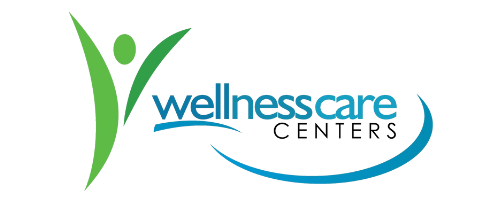Developmental Milestones
Developmental milestones offer important clues about a child’s developmental health
Reaching milestones at the typical ages shows a child is developing as expected. Reaching milestones much earlier means a child may be advanced compared with his or her peers of the same age.
Not reaching milestones or reaching them much later than children the same age can be the earliest indication that a child may have a developmental delay.
Feel free to navigate below to have an idea of where your child may be in their development.
3 MONTHS
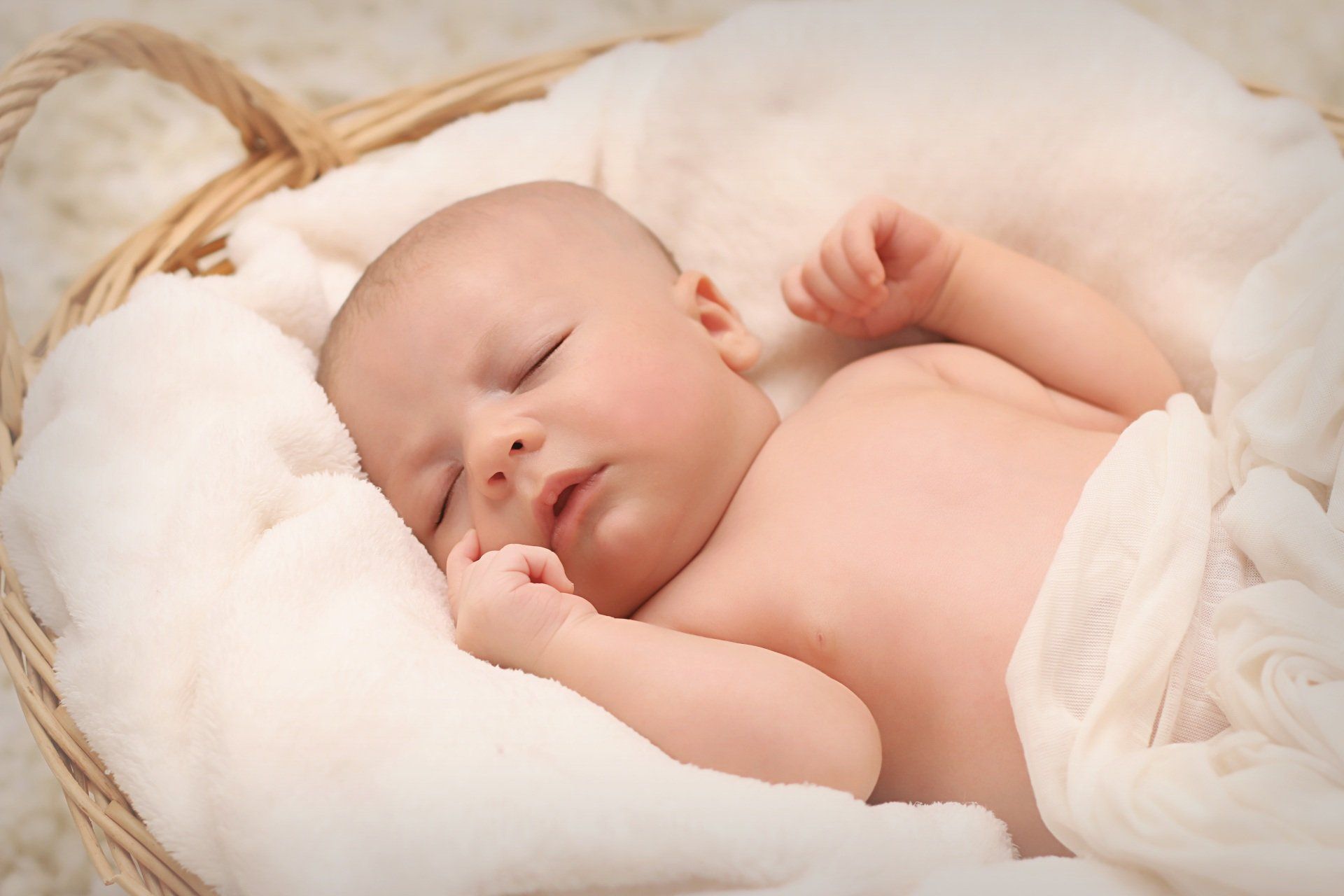
Physical:
- Brings hands toward center of body when lying on back
- Raises head & cheek when lying on stomach
- Opens and shuts hands
- Moves legs and arms off of surface when excited
Thinking & Language:
- Interested in watching faces
- Follows moving objects
- Makes sucking sounds and cooing noises
- Pays attention to sounds such as people talking
Social/Emotional:
- Makes eye contact
- Begins to have a “social smile”
- Seems to enjoy playing with other people
6 MONTHS
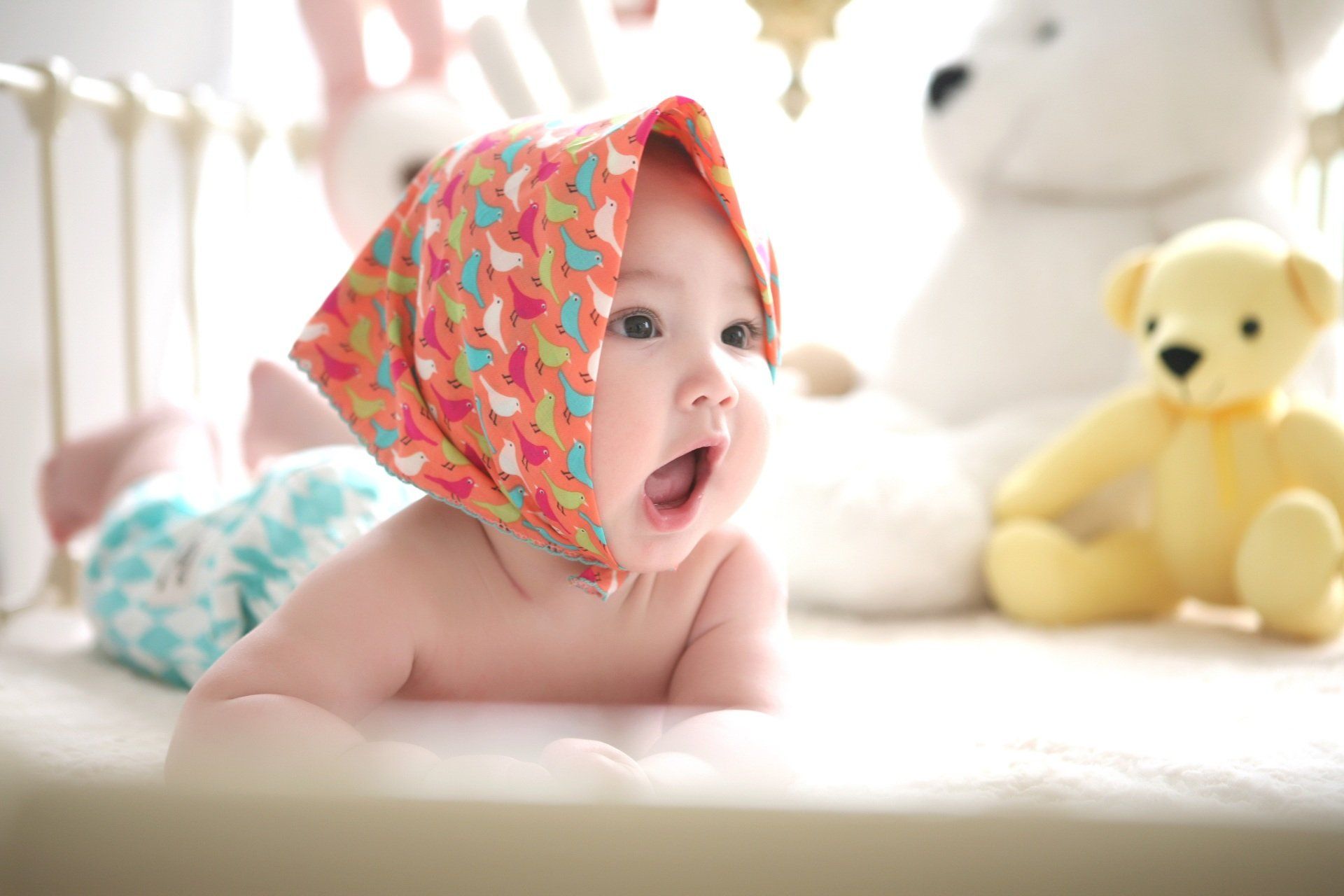
Physical:
- Plays with feet in supine position
- Rolls from stomach to back
- Is able to sit by using hands to support self
- Moves toys from one hand to the other
Thinking & Language:
- Plays “Peek-A-Boo”
- Uses hands and mouth to “explore” new things
- Grasps objects dangling in front of him
- Begins to make syllable-like repetitive sounds
Social/Emotional:
- Responds to sound by making sounds
- Uses voice to express joy and displeasure
- Interested in mirrors
12 MONTHS
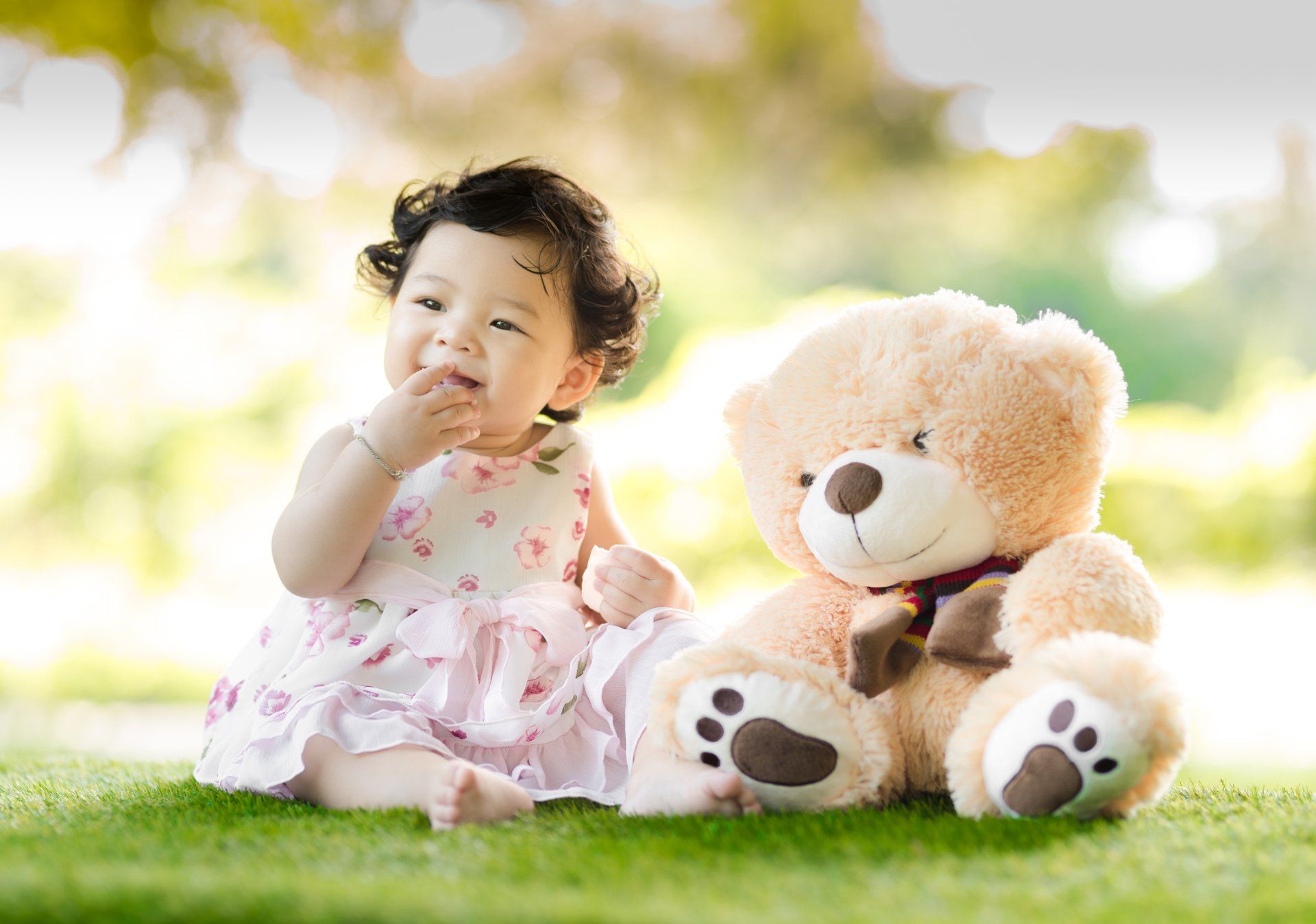
Physical:
- Gets to sitting position without assistance
- Pulls up to standing position on furniture, may walk 2-3 steps
- Crawls on hands and knees
- Tries to imitate scribbling
- Points with index finger
- Feeds self with finger
Thinking & Language:
- Enjoys looking at pictures in books
- Finds hidden objects easily
- Says “dada” and “mama” and may use expressions such as “uh-oh”
- Appropriately shakes head “no”
- Engages in simple games such as peek-a-boo, pat-a-cake, or rolling ball to another person
Social/Emotional:
- Imitates gestures such as waving or shaking head
- May be shy or anxious with strangers
- Repeats sounds or gestures for attention
- May cry when parent leaves
18 MONTHS
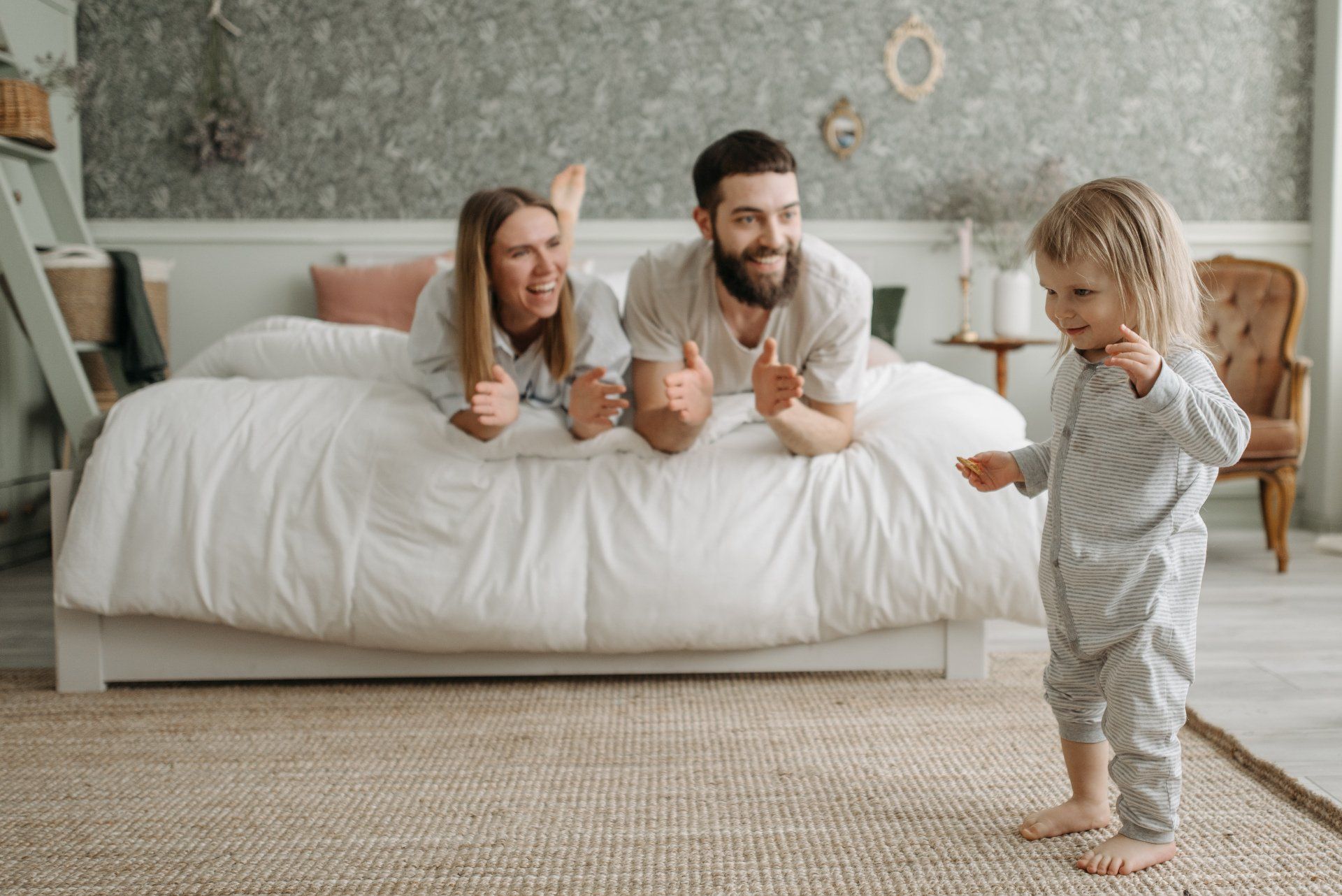
Physical:
- Walks alone, may begin to run stiffly
- Pulls toy behind them while walking
- Turns over container to pour out contents
- Scribbles spontaneously
Thinking & Language:
- Listens to short story book with pictures
- Repeats words overheard in conversations
- Follows simple one-step instructions
- Finds hidden object
Social/Emotional:
- Imitates behavior of others
- May “test” parents at bed time
24 MONTHS
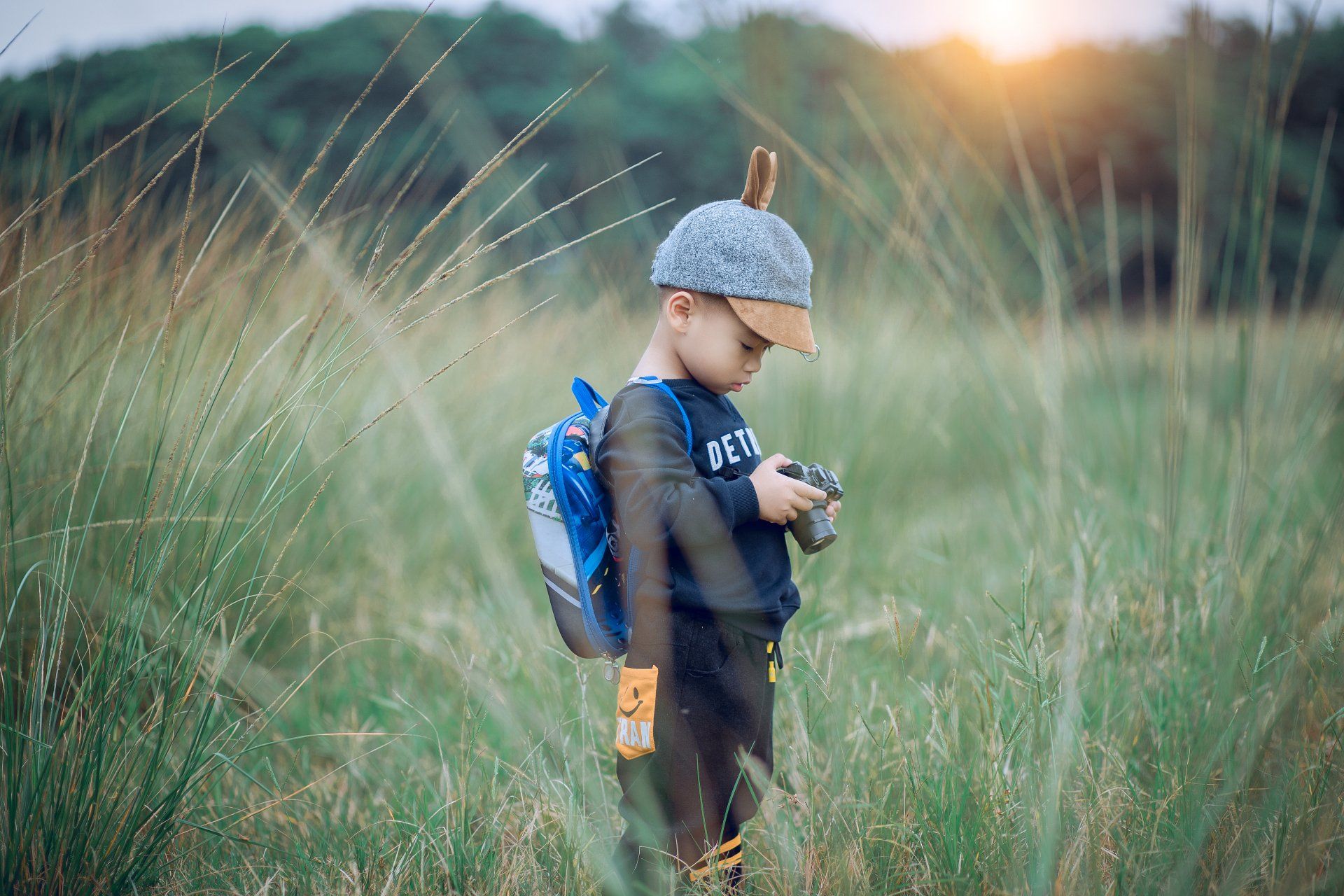
Physical:
- Walks into ball to “kick” it
- Climbs up/down from furniture
- Walks up/down stairs holding on to support
- Builds tour of 4 blocks or more
Thinking & Language:
- Completes simple 3-4 piece wooden puzzles
- Points to object or picture when it is named for them
- Uses 2-4 word sentences
- Begins to make-believe play
Social/Emotional:
- Demonstrates increasing independence
- Begins to show defiant behavior
- Likes to play with food when eating
- Increasingly enthusiastic about company/ other children
36 MONTHS
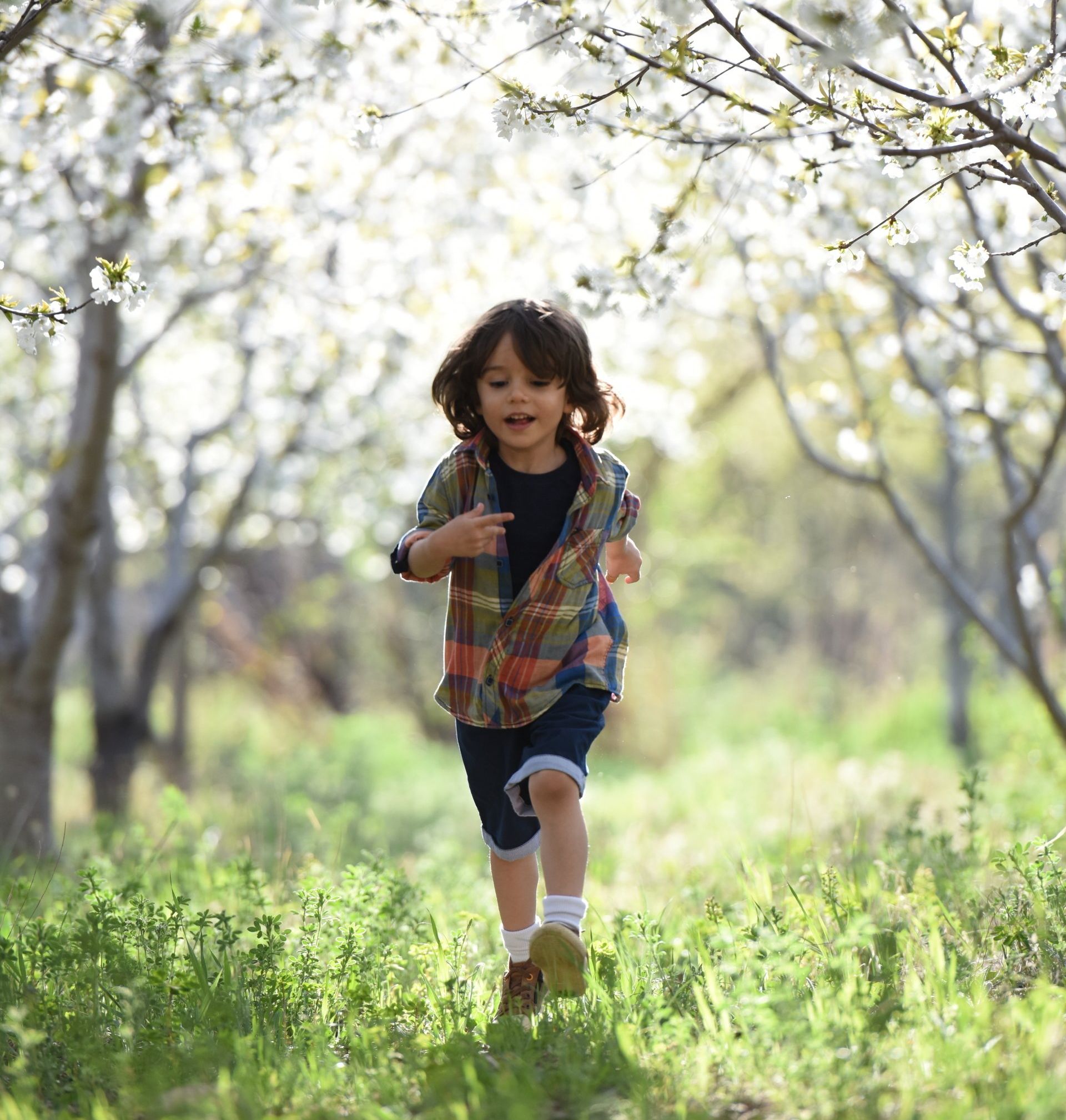
Physical:
- Runs easily
- Pedals tricycle
- Walks down stairs alone, placing both feet on each step
- Draws vertical and horizontal lines as well as circular strokes with pencil/crayon
- Turns pages of book one at a time
- Turns door knobs
Thinking & Language:
- Uses pronouns (I, you, me, we, they)
- Recognizes and identifies almost all common objects
- Knows simple rhymes and songs
- Plays make-believe with dolls, animals and people
- Sorts object by color
Social/Emotional:
- uses the word “mine” often
- says “no” but will still do what is asked
- begins to follow simple rules
- expresses wide ranges of emotion
48 MONTHS

Physical:
- Runs around obstacles, climbs ladders
- Balances on one foot for 3-5 seconds
- Can walk up and down steps with a reciprocal pattern
- Copies a drawing of a plus sign
- Holds crayon between first two fingers and thumb
Thinking & Language:
- Stacks 5 objects in order of size
- Sorts by shape and color
- Matches objects with the same function (e.g., brush/comb)
- Says 1,500 words
- Mean sentence length 4 – 5 words
- Articulates /b/, /d/, /k/, /g/, /f/, /y/
Social/Emotional:
- Usually takes turns
- Shows empathy for others
- Begins to prefer playing with others rather than alone
- Shows pride in accomplishments
- Plays in group games with simple rules
- Separates from parents without crying
